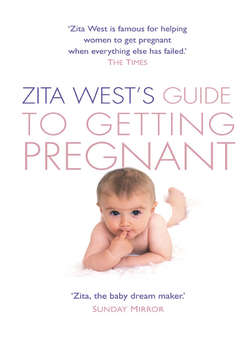Читать книгу Zita West’s Guide to Getting Pregnant - Zita WEST, Zita West - Страница 54
Keeping a Diary
ОглавлениеFirst of all, without making a daily note of where you are in your cycle, it’s hard to gauge your individual pattern of fertility, either for yourself or for a health professional. Many of the women I see keep note of the length of their periods. Knowing roughly the length of your previous six cycles, the length of the shortest and of the longest can be a big help in identifying your fertile time: your shortest cycle minus 20 gives you your first fertile day, and your longest cycle minus 10 gives you your last fertile day.
Your diary should record the following:
• First day of your period (Day 1 of your cycle).
• Signs of cervical mucus (particularly noting the very fertile clear, wet, stretchy secretions).
• Lifestyle notes (evenings out, alcohol intake, stress at work, travel, holidays, etc.)
• Use of any medicines – such as painkillers for headaches, antihistamines, antibiotics, etc.
• Occasions of full sexual intercourse.
• Libido.
• Physical feelings – abdominal cramps, headache, energy levels, breast tenderness, etc.
• Emotions – moods, happiness, irritation, etc.
Most women need to observe their secretions for about three cycles before they feel confident about recognizing changes. Do bear in mind that keeping a diary is designed to provide you with an overview of your cycle, not a foolproof means to conception. It is all too easy to get obsessive about these things – try to keep a sense of perspective.
One of the reasons keeping a diary is so useful is that it is only possible to evaluate your cycle length retrospectively. It’s only after keeping a note of several cycles that any sort of recognizable pattern will begin to emerge. If you have been on the contraceptive pill, or have no idea of what your cycle length might actually be, then keeping a diary noting down this information before trying to get pregnant can be enormously helpful and quite revealing. It also provides you with an objective record of events, which can be equally helpful in identifying problems such as a fluctuating cycle length, inadequate frequency of sexual intercourse, use of medication, etc.
Even though fertility awareness seems to involve a lot of information, as you become more aware of what is happening during your cycle, it soon becomes second nature. What is important, however, is to remain aware without becoming obsessive. When all’s said and done, the single thing that is most likely to improve your chances of conception is having lots of sex, not just sex at specific times. If you can do this without focusing solely on procreation, but keeping the pleasure in mind, it can only be beneficial for both you and your partner.
